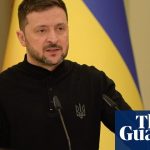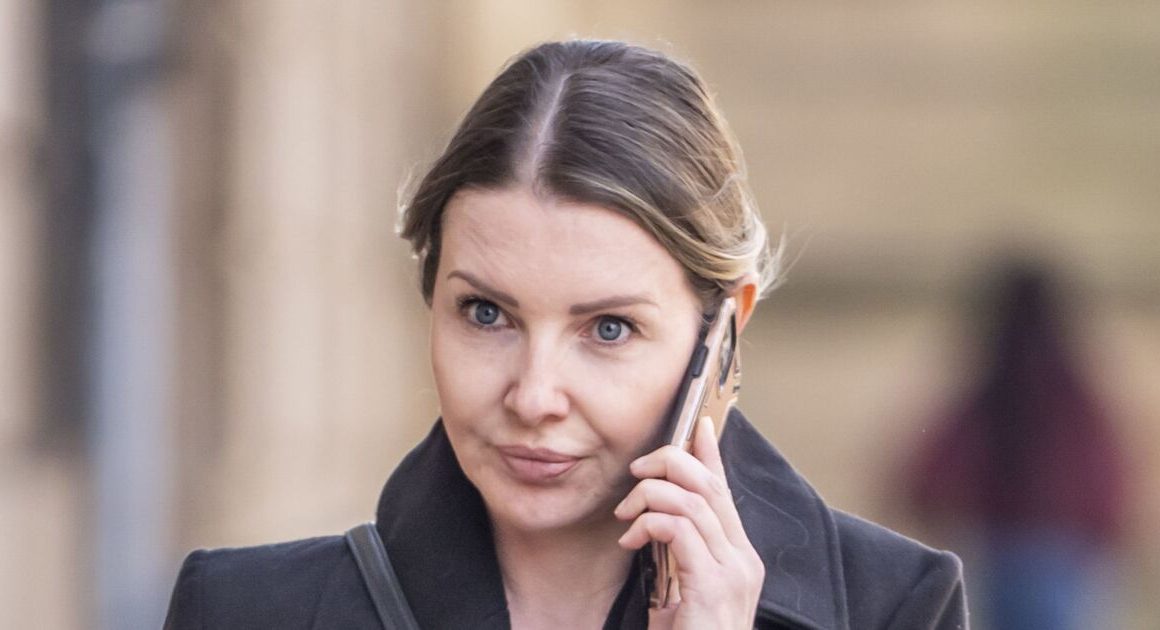The Current24:51Meet the Syrian women demanding a role in the country’s future
As Alma Salem crossed the border from Lebanon into Syria she asked the driver to pull over.
She fled the country 13 years ago when Bashar al-Assad’s authoritarian government opposed pro-democracy protests with military force, plunging the country into civil war. The collapse of Assad’s regime in December made it possible for her to return home from Montreal where she had been living, for the first time since the war began.
Getting out of the car, she knelt and kissed the earth, breathing in its familiar smell.
“I thought I [would] only come back to Syria buried, you know, right to that earth. But I came alive and I could hold it in my hand,” Salem, executive director of the Syrian Women’s Political Movement, told The Current‘s host Matt Galloway.
“I felt that I owned the country. I felt … that all Syria is mine.”
For Syrians like Salem, the end of war brought joy and renewed dreams of what the future may look like. The Current spoke with Salem and two other Syrian activists about their visions for the country’s future and the obstacles that remain in getting there.

Alma Salem
Since returning, Salem says the celebratory feeling in Syria is like an “endless party.” It’s often noisy, filled with the sounds of drums and voices, she said. People can speak freely for the first time without fear that their views might land them in trouble with Assad’s secret police.
“I believe that we took over the public space again,” Salem said.
Salem says now is the time for Syrians abroad to return home. Some six million Syrian refugees resettled around the world since 2011, and the transitional government called on the 1.5 million or so in Lebanon to return earlier this month.
Those who return would be able to take part in building the new Syria from the ground up — something all citizens fought so hard for and share victory in, Salem says.
“It’s a country that is ours now, and we deserve the opportunity,” Salem said.
Salem says it’s critical that women have a role in Syria’s political structure as its population builds a new, post-Assad society. But it’s also something she worries about.
Hayat Tahrir al-Sham (HTS), the rebel group that overthrew the government and became the country’s de facto leadership in December, have a poor record when it comes to women’s rights, including reports of blocking women’s access to education and requiring women to be accompanied by a male guardian in public in the past.
Aisha al-Dibs, the new head of Syria’s women’s affairs office, told Al Jazeera that her government was committed to engaging women within social, political and cultural institutions — but sparked outcry when she said that women should “not go beyond the priorities of their God-given nature” and remember the educational role they have within a family.
These words sparked a wave of anger among Syrian feminists, according to Salem. Despite this, she remains optimistic that those with power are listening to women in her country.
Salem organized a conference this month, attended by about 300 politicians, political representatives, journalists and members of civil society groups, that shared the ideas of women involved in Syrian politics.
“This was, you know, a good sign for us that they acknowledged our … statements and demands of women’s political participation,” Salem said.

Noura Aljizawi
Noura Aljizawi, a Syrian human rights activist who played a key role in the 2011 uprising, also fled to Canada from Syria during the war. She hasn’t left Toronto to visit home yet, but she’s planning a trip there soon.
It will be the first time her daughter ever sees the country and meets Aljizawi’s father — a dream their family thought might never come true.
Before power changed hands in December, Aljizawi was losing hope that she’d ever get to return home or see her family in person again.
“But now everything is possible. And the dream is just true now,” she told Galloway.
She says the first step toward rebuilding Syria needs to be accountability.
WARNING: This video includes a description of torture. Omar Alshogre, a former Syrian political prisoner who escaped starvation and torture in Bashar al-Assad’s prison system, says the joy he felt watching the regime crumble is worth ‘all the pain, all the suffering, all the fear, all the disappointment, all the betrayal.’
Amnesty International estimates that tens of thousands of civilians were disappeared following political protests in 2011. Many were thrown into prison to be tortured, starved or executed. As many as 13,000 people were executed in the notorious Saydnaya Prison between 2011 and 2016 according to Amnesty International.
With the old regime gone, jails full of prisoners have been liberated. But Aljizawi says many people are still missing — including some from her own family. People deserve answers as to where their missing relatives are, she says.
“Truth must be told, and victims must be heard,” Aljizawi said.
“The alternative of justice is revenge. And we don’t want … victims seeking revenge against perpetrators.”
Still, Aljizawi says the hardest job is done — uprooting the authoritarian regime. “There’s nothing impossible after that.”

Azza Kondakji
Azza Kondakji was persecuted by the Assad regime for her activist work. But she never left the country, opting instead to stay and help other Syrians through the civil war.
She also wanted to be there to witness the moment her country was liberated — which she says she always believed would come. “It was hope that kept me in the country,” she told Galloway.
With that moment finally in the rear-view mirror, Kondakji says cleanup and rebuilding efforts will be a huge task — as much of the country’s infrastructure and essential services have been decimated by years of fighting.
A 2022 analysis by the World Bank estimated the total damage across the nation to be $8.7-11.4 billion US ($12.48-16.35 billion Cdn). Kondakji says rebuilding Syria will require other countries to provide economic support and lift their Assad-era sanctions.
Kondakji hopes that with some support, the next generation of Syrians will carry the torch in building a peaceful future.
An estimated 2.4 million children are still out of school in Syria — either because their families have been displaced, they can no longer afford to be in the classroom, or their classrooms were destroyed in the fighting, according to Kondakji. Many suffer with the emotional weight of witnessing war, too, and will need psychosocial support.
Kondakji envisions a future where Syrian children can grow up in schools that foster creativity as opposed to fear, and where dreams of becoming a scientist or an artist or a world leader can be made a reality.
“Syria’s next generation has the potential to redefine what it means to be a Syrian — not through pain, but through pride and hope,” Kondakji said.
“They embody the dream of a nation that can stand tall once again, like a phoenix is reborn.”












